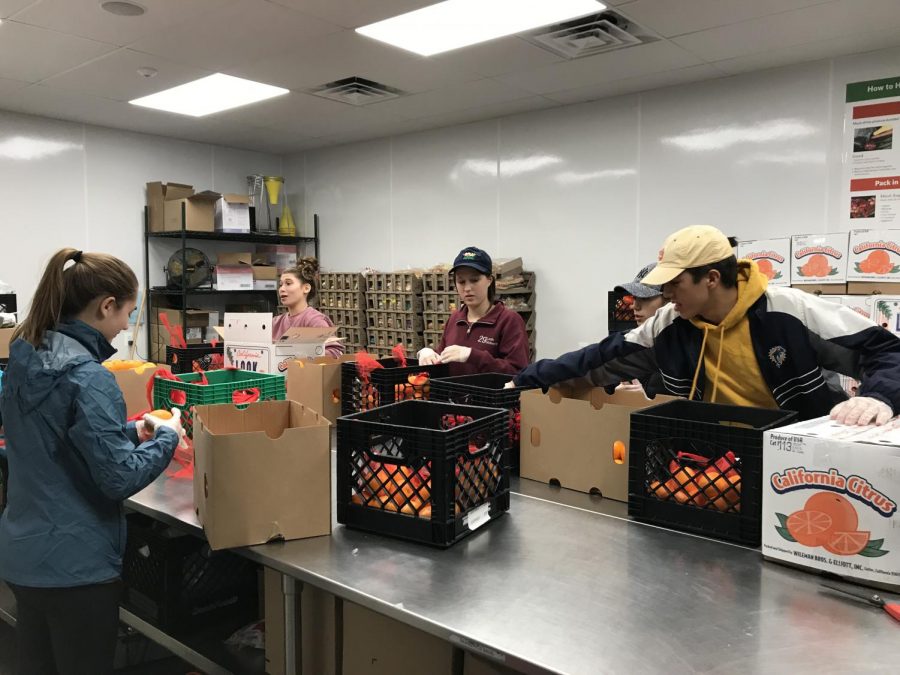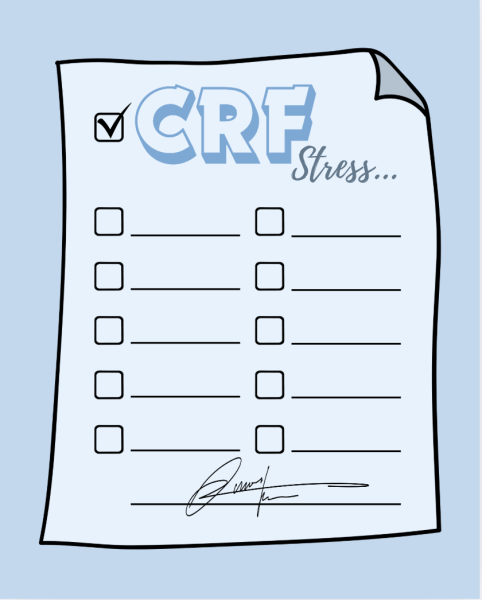Help for the holidays
Laughing around the fireplace, sipping hot cocoa and watching movies in pajamas is what the holidays mean to many. For a lot of people though this is not the case. Instead, it can mean struggling to survive.
For these people, Arlington Food Assistance Center (AFAC) can help and for others it can be a means of giving back. AFAC is a nonprofit organization that contributes to the community by distributing donated food to those in need.
“Students can volunteer individually on their own time at AFAC or host a food drive as a large student body or a small group/club,” AFAC communications manager Jeremiah Huston said. “Volunteering activities are very popular, such as produce bagging or chicken bagging. They are simple tasks that don’t need much training beforehand and without a long term commitment. You just sign up in advance if there is space available.”
Students can easily sign up to help on the AFAC website. There are plenty of volunteer options besides bagging, ranging from cooking and distributing goods to gardening and providing health education. During the holiday season, volunteer rates at AFAC are high.
“Holidays are a time of giving for your loved ones and with that spirit, it extends out to giving back towards the community around you,” Huston said. “Donations spike in November and December, and volunteer requests are the heaviest during this time of year.”
Surges in donations and volunteers are extremely helpful, but as soon as the calendar shifts to January, there is a steep decline in these rates.
“There are people who just want to volunteer on certain days, like Thanksgiving and Christmas, but when we offer other volunteer opportunities after the holiday season, they don’t have any interest, and we never hear from them again,” Huston said. “Hunger is an issue all year, so we try to relay the message that donations and volunteer time is still needed after the holiday season.”
Although poverty exists year-round, community attention is drawn to it during the holiday season since there is an emphasis on charity and reflecting on what people are grateful for. Generals Against Hunger Club president junior Leah Karush believes neglecting to give back during the rest of the year is largely due to unawareness of poverty.
“Not a lot of people know about food insecurity in Arlington because it’s kind of an affluent county–a lot of people are well off,” Karush said. “But there’s also many families especially in South Arlington, that are food insecure and AFAC serves thousands of families every week.”
The Generals Against Hunger Club, which meets on L-day Thursdays in room 4201, gives students a way to help.
“We volunteer [at AFAC] once a month, we have meetings twice a month and we also fundraise for AFAC,” Karush said.
The Student Council Association (SCA) also organizes donations that give students a chance to help those in need. Using donuts as an incentive, they host a contest to see which GP class can collect the most food for AFAC. SCA sponsor advisor Timica Shivers said the students work hard to arrange these food drives.
“SCA begins planning the food drive about a month in advance, with the president delegating many tasks throughout,” Shivers said. “They coordinate a date for AFAC to drop off the big bins to WL and decide upon a date to pick up donations after the drive is completed. Students get brown paper bags from the grocery store and deliver to GP’s at the beginning of the drive, hosting a friendly competition among GP classes with the hopes of obtaining a large amount of donations.”
Although this may seem stressful, the SCA students enjoy the process since it creates a community of people who are all helping to make a difference.
“They enjoy going around to the GP classrooms, promoting the drive, motivating friends and teachers and helping students to understand the huge impact we as a school can make if everyone pitches in,” Shivers said.
Contributing to the community doesn’t only make a difference in other’s lives. Additionally, it can be very helpful to students dealing with the anxieties and insecurities of high school and growing up.
“It’s very selfish but it always makes you feel really good about yourself because you spend an hour or two hours doing something for someone else,” Karush said. “It’s so much about the cause and why you’re doing it.”
Along with the mental health benefits of volunteering it can also lead to a future.
“We have had ambitious students in the past create lasting projects and programs for AFAC,” Huston said. “Not only does this help us, but it helps shape their interests in their academic and professional careers. Because of their experiences volunteering here at AFAC or other places, they have found careers in the nonprofit sector, including a few former students have found jobs here at AFAC.”
Despite being young, students can create change. Helping others is a way for them to change lives, including their own.
“I think bringing it to high schoolers is really important because we do have the power to make a difference,” Karush said. “We may not be influential in terms of politics but we’re definitely influential in terms of our communities and our families. And if people know about it then people can do something about it.”












